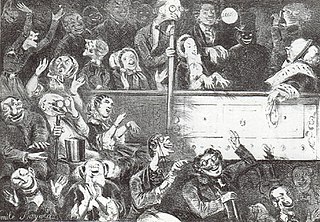
Operetta is a form of theatre and a genre of light opera. It includes spoken dialogue, songs, and dances. It is lighter than opera in terms of its music, orchestral size, length of the work, and at face value, subject matter. Apart from its shorter length, the operetta is usually of a light and amusing character. It sometimes also includes satirical commentaries.

Franz Lehár was an Austro-Hungarian composer. He is mainly known for his operettas, of which the most successful and best known is The Merry Widow.

Emmerich Kálmán was a Hungarian composer of operettas and a prominent figure in the development of Viennese operetta in the 20th century. Among his most popular works are Die Csárdásfürstin (1915) and Gräfin Mariza (1924). Influences on his compositional style include Hungarian folk music, the Viennese style of precursors such as Johann Strauss II and Franz Lehár, and, in his later works, American jazz. As a result of the Anschluss, Kálmán and his family fled to Paris and then to the United States. He eventually returned to Europe in 1949 and died in Paris in 1953.

Bad Ischl is a spa town in Austria. It lies in the southern part of Upper Austria, at the Traun River in the centre of the Salzkammergut region. The town consists of the Katastralgemeinden Ahorn, Bad Ischl, Haiden, Jainzen, Kaltenbach, Lauffen, Lindau, Pfandl, Perneck, Reiterndorf and Rettenbach. It is connected to the village of Strobl by the river Ischl, which drains from the Wolfgangsee, and to the Traunsee, into which the stream empties. It is home to the Kaiservilla, summer residence of Austro-Hungarian monarchs Emperor Franz Joseph I and Empress Elisabeth. In 2024, Bad Ischl will be one of the European Capitals of Culture – the third city in Austria after Graz (2003) and Linz (2009).
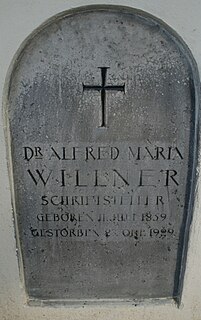
Alfred Maria Willner was an Austrian writer, philosopher, musicologist, composer and librettist.

Fritz Löhner-Beda, born Bedřich Löwy, was an Austrian librettist, lyricist and writer. Once nearly forgotten, many of his songs and tunes remain popular today. He was murdered in Auschwitz III Monowitz concentration camp.
Nico Dostal was an Austrian composer who later specialised in operetta and film music.
Lillie Claus-Dostal (1905–2000) was an Austrian lyric coloratura opera and operetta singer.

The Carltheater was a theatre in Vienna. It was in the suburbs in Leopoldstadt at Praterstraße 31.
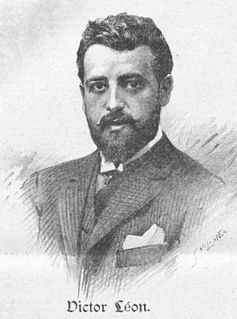
Victor Léon, also Viktor Léon was a well-known Jewish Austrian-Hungarian librettist. He collaborated with Leo Stein to produce the libretto of Franz Lehár's romantic operetta The Merry Widow.
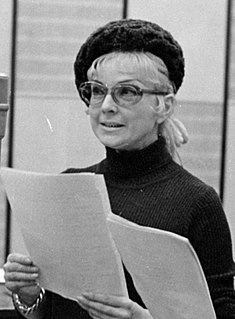
Erzsébet Házy was a Hungarian operatic soprano. She fascinated the critics and audience not only with her voice but also with perfect acting and her beauty. She was particularly admired for her portrayal of the title heroine in Giacomo Puccini’s Manon Lescaut.
Esther Réthy was a Hungarian operatic soprano who had a major career in Europe from 1934 through 1968. She was notably a principal artist at the Vienna State Opera for over a decade and was a frequent performer at the Salzburg Festival. She performed a broad opera repertoire that encompassed French, German, Italian, Czech, and Hungarian operas. The latter part of her career was dedicated mainly to performing the German operetta literature at the Vienna Volksoper. A very beautiful woman, she was a greatly admired Angele in Richard Heuberger’s Der Opernball.
Albin Swoboda Jr. was a German operatic bass-baritone. Born in Dresden, he was the son of tenor and actor Albin Swoboda Sr. and soprano Friederike Fischer; both of whom were luminaries of the "Golden Age" of Viennese operetta. His grandfather, Joseph Wilhelm Swoboda, also had an important career as a tenor and opera director in Vienna. In 1910 he became romantically involved with opera singer Anna Sutter. Sutter had broken off a relationship with conductor Aloys Obrist around the same time, and Obrist became highly distraught by the situation. On 29 June 1910, Obrist broke into Sutter's apartment, murdered her, and committed suicide in the presence of Swoboda who was unable to stop him.

Anna Christina Maria "Christl" Mardayn was an Austrian actress/singer.
Where the Lark Sings is a 1918 operetta by the Hungarian composer Franz Lehár. The libretto by A. M. Willner and Heinz Reichert was inspired by Dorf und Stadt by Charlotte Birch-Pfeiffer. The work premiered at the Király Theatre in Budapest on 1 January 1918. It was one of Lehár's most successful wartime operettas.
Manina is a 1942 German-language operetta by Nico Dostal to a libretto by Hans Adler and Alexander Lix. It was premiered 28 November 1942 at the Admiralspalast in Berlin.
Monika is a 1937 operetta by Nico Dostal to a libretto by Hermann Hermecke. The premiere was 3 October 1937 in Stuttgart.
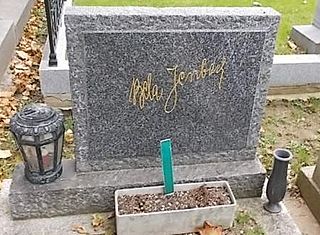
Bela Jenbach, real name Béla Jacobowicz was an Austrian actor and operetta librettist of Hungarian origin.
Harry Friedauer was a German actor and operetta singer (tenor).










